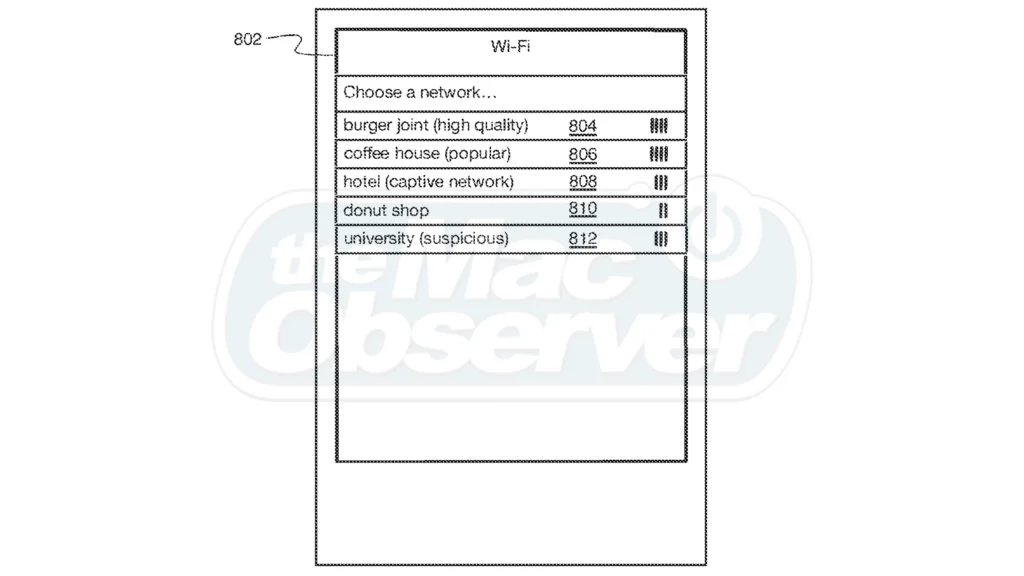Public Wi-Fi networks are risky. You never know when you may connect to a sketchy network that can either steal your data or plague your device with malware, especially if you’re in an unfamiliar environment.
Until now, using a VPN has been the first line of defense against dubious public networks. However, we may soon see some first-party aid from Apple. The company has filed a new patent that aims to make connecting to unknown networks more secure.
According to the patent, the new approach will involve crowd-sourced data to map Wi-Fi access points and provide feedback on the reliability and security of each nearby network.
When this feature goes live, expect to see a revamped Wi-Fi selection page, where each available network will be labeled according to the data Apple collected from devices connected to that network. Labels will include High-quality, Popular, Captive, Suspicious, and more.

Apple devices will collect anonymized data about Wi-Fi access points they connect to, ensuring no personal information or exact locations are shared. This data is sent to Apple’s servers, where it is used to create detailed maps of access point locations and network performance metrics.
Showing these labels will improve users’ safety in public places and help them make smarter decisions about which networks to connect to.
This technology is expected to be integrated into future versions of iOS and possibly macOS.
